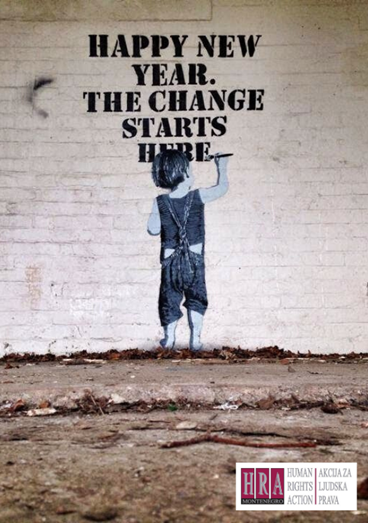
Happy holidays and 2020!
27/12/2019
Implementation of ‘‘Causing Panic and Disorder’’ Criminal Offense and Incarceration of Journalists
13/01/2020A Landmark Ruling by the Montenegrin Constitutional Court – a Ban on Extradition to Turkey due to Risk of Torture
The Human Rights Action (HRA) welcomes the landmark ruling adopted by the Montenegrin Constitutional Court, which abolished the order to extradite Mr. Harun Ayvaz to Turkish authorities due to the risk of torture.
Mr. Ayvaz was the administrator of a student home and member of the Gülen movement, and had been accused by Turkish authorities of associating with a terrorist organisation. He sought assylum in Montenegro. The decision on his extradition was first issued by the Higher Court of Bijelo Polje, and later affirmed by the Montenegrin Court of Appeals.
The Constitutional Court’s chamber, composed of judges Mevlida Muratović, Miodrag Iličković and Budimir Šćepanović, applied the non-refoulment principle, which prohibits a state from extraditing any person to a nation where they would be in danger of torture, and abolished the decision of the Court of Appeals.
With this ruling, the Constitutional Court demonstrated understanding of the international prohibition of torture and acknowledged the criticism of the Turkish persecution of Gülen movement members, a victimising practice that has been previously denounced by international governmental and non-governmental organisations.
HRA highlights that prior to the Constitutional court’s ruling, Mr. Dragan Mrdak, a judge of the Bijelo Polje Higher Court, also concluded that the extradition order was unfounded, citing the caselaw of the European Court of Human Rights and the decision of the UN Committee Against Torture in the case of Ayaz v. Serbia. However, the Chamber of the Bijelo Polje Higher Court overruled his decision and instead ruled in favour of the extradition, a decision which was upheld by judges Milić Međedović, Miška Dujović, and Radmila Mijušković of the Montenegrin Court of Appeals.
The conclusion of the Constitutional Court’s ruling emphasised that: “Due to the above stated reasons, including the fact that the Turkish security forces are known to torture any person for whose involvement with the FETO movement there exists a reasonable doubt; the serious, massive, and systematic violations of human rights which continue to be ascribed to the Turkish security forces; as well as the aforementioned prescriptions of the Articles of the Law on International Legal Aid in Criminal Matters and the Law on International and Temporary Protection for Foreigners, the Constitutional Court finds the concern that the appellant’s extradition to Turkey would violate Article 3 of the European Convention grounded.”
HRA congratulates Mr. Ayvaz, his lawyer Mr. Dalibor Tomović, and the judges of the Constitutional Court of Montenegro on a ruling bearing significance for the protection of Human Rights on an international level. We also congratulate our colleagues from the Civic Alliance who provided Mr. Ayvaz with legal aid as part of their project providing support to migrants and asylum-seekers. The case is one of historical significance because it is the first time that the Constitutional Court banned extradition over torture concerns. HRA expects that in their new ruling, the Court of Appeals will apply international legal standards as indicated by the Constitutional Court and ultimately reject the extradition request.







 English
English